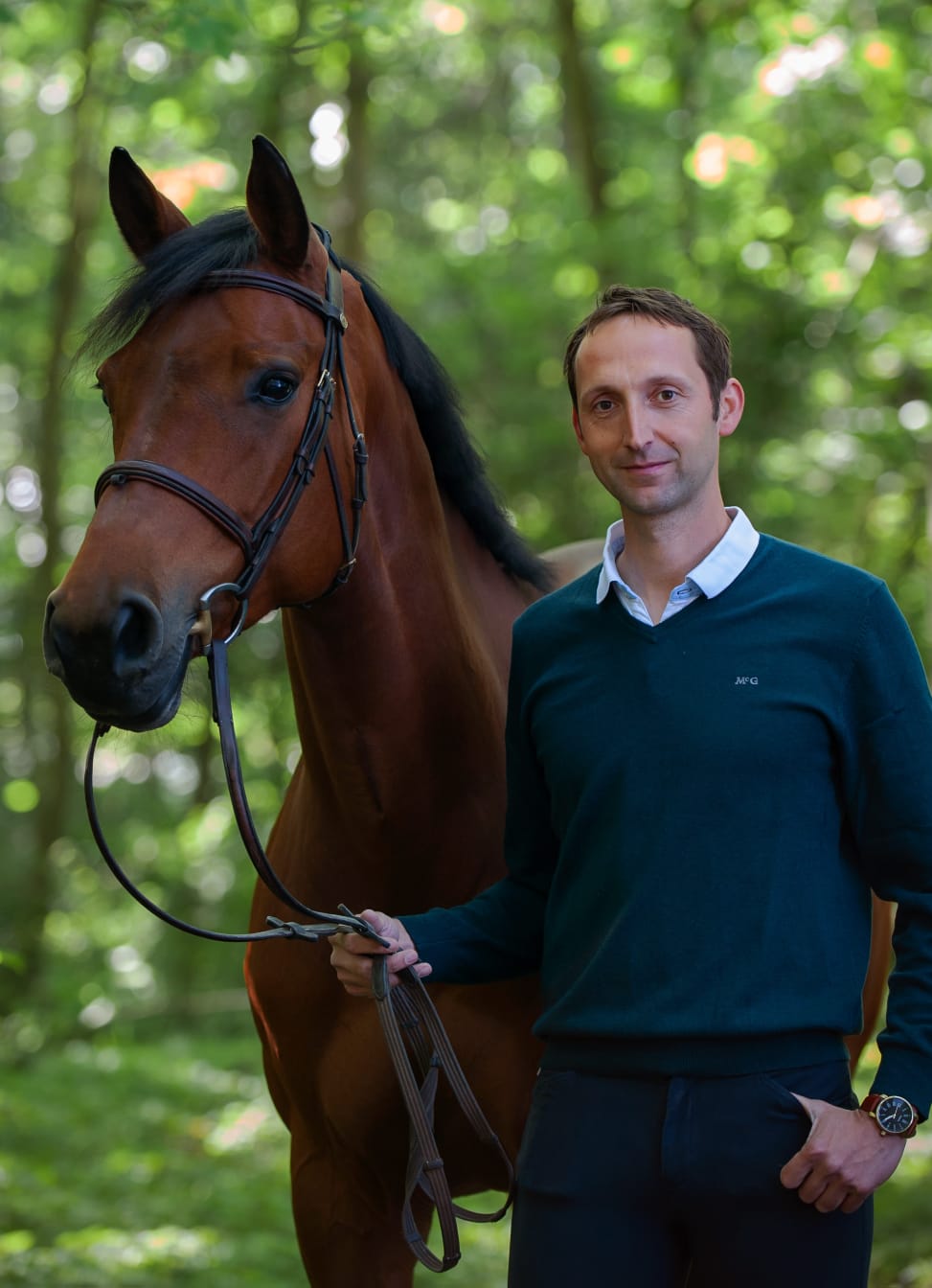Michael Fischer is a horseman and trainer who deals with both areas of riding. Both dressage and show jumping horses are promoted and trained from foal age on at his own facility. As an international trainer and rider he was successful up to CSI****. In addition, he is particularly concerned with innovative training approaches. In this context he was able to win this year's Innovation Award for the MF Training Equestrian App at the Equitana.
Why equestrian sports?
From a functional point of view, 9 out of 10 points (time, money, friendships, ...) speak against riding as a hobby and much more as a profession. However, I believe that I have discovered something in life with horses that fascinates me so much and binds me emotionally that I can ignore all the "negative" points. I consider this to be an absolute gift and I'm sure everyone would wish for it. A profession that is practiced with passion is not a typical profession, but a mission. I have definitely found my mission.
Evaluation of young horses:
As a breeder, each phase of a horses development has its specific characteristics. The evaluation is more difficult or easier, depending on the stage of their development. Nevertheless, I benefit primarily from the comparability possibilities offered by many years of experience. It is important to me that the young horses feel comfortable in their own movements and bring along a natural, good balance.
Evaluation of trained horses:
With horses that have been trained a little further, the focus is certainly also on rideability (basic training) and not in the least on the performance achieved so far. When I see and judge a more experienced horse, I want to have a mentally and physically healthy athlete in front of me.
Which horse needs which rider?
In the end it is important that horse and rider complement each other well. Just as we humans differ in character and physicality, so it is with horses. For example, insecure riders need experienced and safe horses, a tall rider feels more comfortable on a slightly more framed horse, an overmotivated horse needs a calm and relaxed rider to develop its potential. The most important thing is the self-assessment of the rider and horse owner. A suitable combination can only be found by taking up the actual situation.
Training philosophy - horse:
I think I have learned over the years that horses show us very clearly what kind of riders they need in order to provide the best possible performance. In summary, I would say that as a rider (as well as possible) I am always who I need to be in order for my horse to develop in the best possible way.
Training philosophy - Rider:
Certainly of great advantage I see my education to the graduate of social pedagogy. Through my horses I have learned more about myself than through any other influence. Since horses do not think logically, but follow their instincts consistently, they are " basically honest" animals for me. If I teach someone three or four times, I usually "know" that person better than if I knew them "just like that" for three years. Of course, I am not talking about things like favourite colours or eating habits, but about very deep-seated and personality distinguishing qualities such as frustration tolerance, self-assessment, self-expression, dealing with expectations and desires, understanding success, dealing with fear and much more.
Who understands and recognizes how horses fundamentally are and how they react instinctively, can thereby clearly "read and analyze" the respective rider. Horses, unlike humans, never think one thing and then act differently. Exactly this leads to an absolutely unadulterated mirror of each rider.

